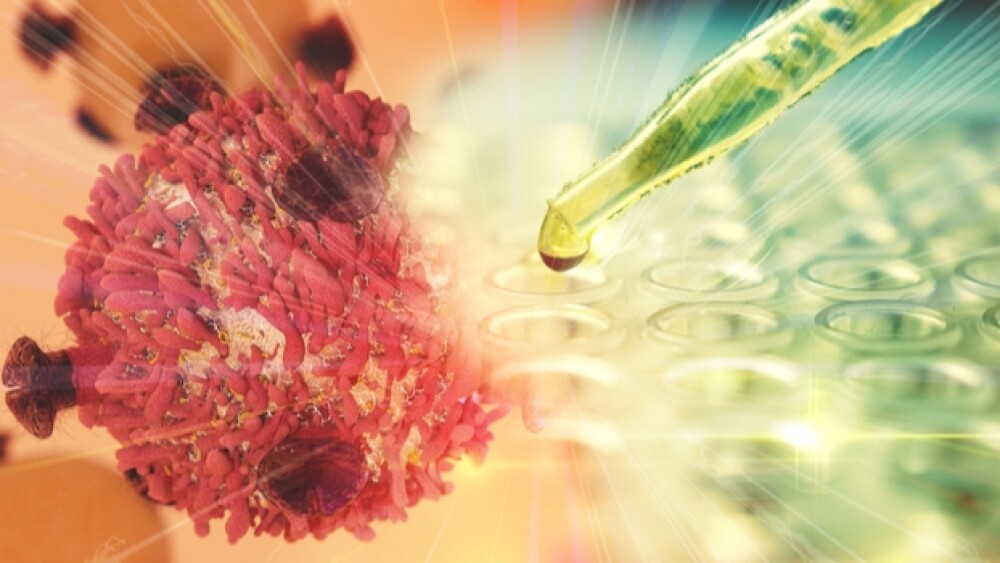Data on multiple oncology therapeutic programs are being unveiled ahead of the start of the annual American Association for Cancer Research meeting, which will be held virtually this year due to the ongoing COVID-19 pandemic.
Data on multiple oncology therapeutic programs are being unveiled ahead of the start of the annual American Association for Cancer Research (AACR) meeting, which will be held virtually this year due to the ongoing COVID-19 pandemic. BioSpace took a look at some of the data that will be presented.
Iovance – California-based Iovance Biotherapeutics will share data from Cohort 2 of its ongoing assessment of ifileucel in advanced melanoma. In Iovance’s abstract, study data showed ifileucel, an autologous tumor infiltrating lymphocyte, demonstrated a 36.4% overall response rate in Cohort 2 patients. Among that rate were 4.5% complete responses and 31.8% partial responses. The median duration of response was not reached at the 28.1 month follow-up time, the company said.
Patients in Cohort 2 had heavily pretreated metastatic melanoma with high baseline disease burden, Iovance noted. Many of the patients progressed through their treatment on an average of three treatments, including anti-PD1 and BRAF/MEK inhibitors if BRAFV600 mutation positive.
“The updated results of the C-144-01 study continue to demonstrate that autologous tumor infiltrating lymphocytes (lifileucel) induce durable clinical responses in 36 percent of patients in the study. This study also creates opportunities for additional trials of TILs in many other cancer types and in combination with immunomodulatory agents,” Jason Chesney, director of the James Graham Brown Cancer Center at the University of Louisville and principal study investigator, said in a statement.
NanoString – Seattle-based NanoString Technologies will present eight different abstracts at AACR, highlighting its GeoMx Digital Spatial Profiler (DSP), which is designed to enable researchers to characterize tissue morphology to rapidly and quantitatively profile RNA and proteins, according to the company. Four of NanoString’s eight abstracts will be presented by investigators from the GeoMx Breast Cancer Consortium (GBCC), an international group of breast cancer researchers. The goal of the GBCC is to apply innovative approaches and decipher the spatial context of breast cancer to develop a comprehensive atlas and database of novel biomarkers for the disease, NanoString said in its announcement.
One of the abstracts presented is focused on precision therapies in HER2 positive breast cancer. The findings of this study suggest immunotherapies could play a significant role in treating early-stage breast cancer. In this study, the company’s GeoMx DSP profiled 71 protein targets, and additional gene expression profiling was conducted using NanoString’s nCounter PanCancer IO360 assay for primary and metastatic tissues from human epidermal growth factor 2 positive (HER2+) breast cancer patients. A characterization of immune cold, warm and hot regions of interest in the tumor and tumor immune microenvironment of the samples established that primary tumors had a higher number of immune cells than the metastatic sites.
More of NanoString’s abstracts can be found here.
IN8bio – New York’s IN8bio, which uses its DeltEx platform to develop innovative gamma-delta T cell therapies, will present data demonstrating that INB-300, the company’s preclinical DeltEx drug resistant immunotherapy platform, (DRI) CAR-T candidate has “enhanced persistence and cytotoxicity against glioblastoma multiforme (GBM) cells.” The in vitro work that will be presented at AACR shows the DeltEx DRI CAR-T modified cells can bind GBM cell lines and induce cellular activation, as well as demonstrate significant cytotoxic killing and persistence, the company said.
Lawrence Lamb, co-founder and chief scientific officer of IN8bio, said the abstract data demonstrates “early biological proof-of-concept for INB-300.” INB-300 is a DeltEx DRI Chlorotoxin CAR-T preclinical candidate that combines IN8bio’s gamma-delta T cells, DeltEx DRI technology, and a novel chlorotoxin targeting CAR. INB-300 is designed to “confer both TMZ resistance, enhance the tumor-targeting/trafficking capabilities, and increase persistence of the gamma-delta T cells.”
MiNA Therapeutics – London-based MiNA Therapeutics will present data supporting favorable immunological effects of drug candidate MTL-CEBPA and its benefits combined with other cancer therapies, including anti-PD-1 checkpoint inhibition. MTL-CEBPA is the first candidate from MiNA’s pipeline of small activating RNA therapeutics, a new class of medicines designed to restore normal cell function.
In pre-clinical studies, MTL-CEBPA has been shown to counteract a key cancer immune evasion pathway by inhibiting immune suppression from myeloid cells. MTL-CEBPA was also shown to boost the anti-tumor activity of immunotherapies, including anti-PD-1 in models of lung and colon cancer. In a Phase Ib study of advanced liver cancer, MTL-CEBPA demonstrated durable and complete tumor responses as a combination treatment with a standard of care tyrosine kinase inhibitor. A Phase II study in advanced liver cancer is expected to begin later this year. MiNA is also assessing MTL-CEBPA in a second study in patients with advanced solid tumors in a Phase I/Ib clinical trial in combination with a checkpoint inhibitor.
Surface Oncology – Massachusetts-based Surface Oncology will present preclinical findings supporting its lead product programs, SRF388, which targets IL-27, and SRF617, designed to target CD39. The preclinical findings support the biological rationale that both candidates promote increased proinflammatory activity within the tumor microenvironment, Vito Palombella, Surface’s chief scientific officer said in a statement. The company is conducting ongoing Phase I studies with both assets. Data from those studies are expected in June.
Highlights of the presentation will show that SRF617 is a potent inhibitor of CD39 enzymatic activity both in vitro and in vivo. Through SRF617, inhibition of CD39 predominantly shaped the transcriptional landscape of myeloid cells and dendritic cells, and generally induced proinflammatory conditions, the company said.
For SRF388, data will show that inhibiting IL-27 leads to tumor growth inhibition and suppressed hepatocellular carcinoma (HCC) development in non-alcoholic steatohepatitis (NASH)-driven HCC model with concomitant enhancement of natural killer (NK) cell activity. Findings indicate that IL-27 inhibition regulates NK cell-mediated control of HCC and is a “promising therapeutic target in liver cancer,” the company said.





